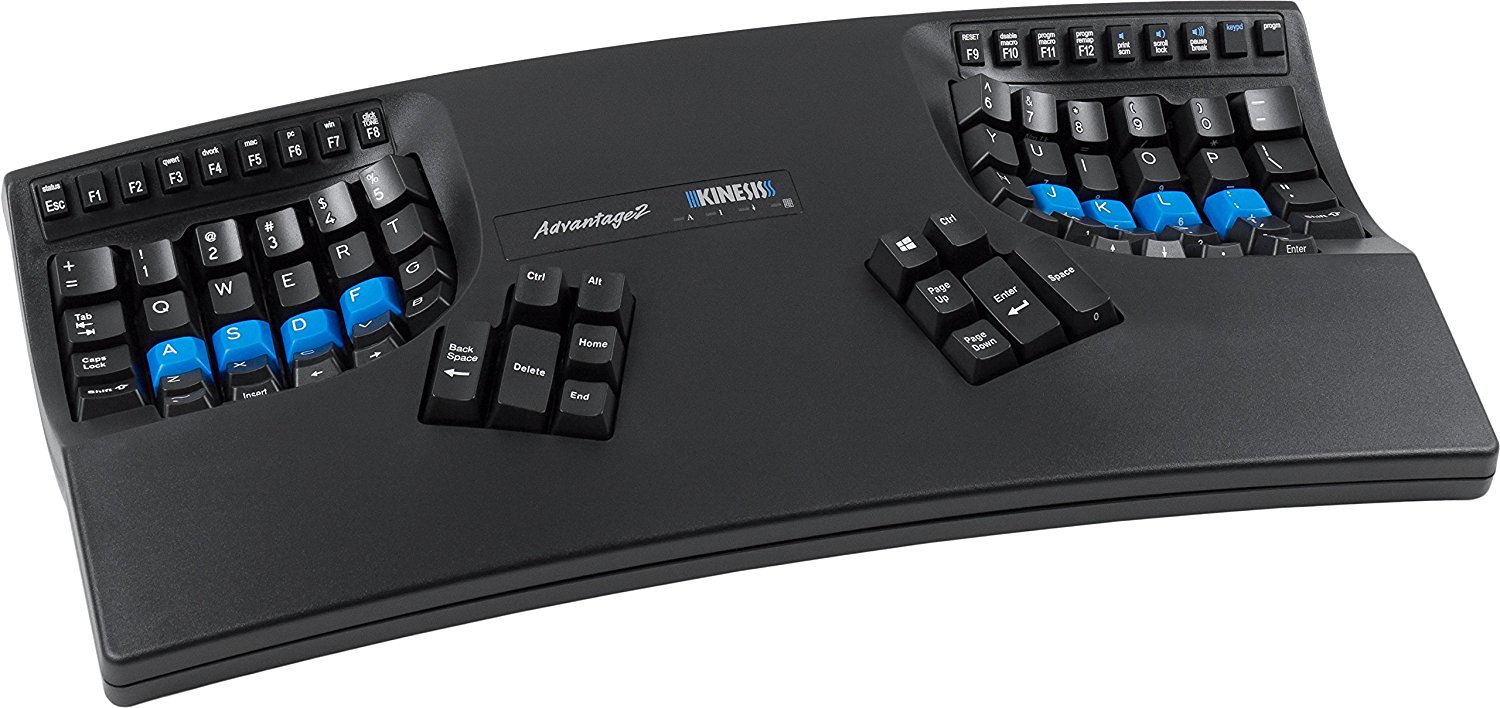Healthy Hands and Eyes as a Software Engineer
As a software engineer you rely on your hands and eyes to practice your craft. I’ve been using a mouse and keyboard for at least 25 years - and for 40+ hours a week for at least the last 15. Fortunately, I have never had any problems with hand or wrist pain, but others aren’t so fortunate.
Here is a tweet I came across today:
Since August of 2016, I’ve been dealing with chronic tendinitis in my right wrist, thumb, shoulder, and neck. Pain, every day. At it’s worst, I’ve only been able to get through my work day by soaking my arm in an ice bath, taking long breaks, and walking out of the studio when deadlines are screaming at me. I’ve been in physical therapy for 5 months now, but this has changed my whole life. Tendinitis has taken away my ability to do the things I love.
- Nate Piekos (@blambot), 18 Aug 2017
A quick google search will show you many similar stories, as well as many possible ways to try and combat repetitive stress injuries. A few years ago I did some research on this topic - not because I was starting to have the symptoms, but because I love programming and I didn’t want to get to a later stage in life and be forced to stop doing it because of physical problems. Since this is something I’m doing every single day I compare it to a pilot taking a ship or plane on a long journey - a small adjustment has a massive impact on where you end up in the long run.
Taking Care of Your Hands
The standard keyboard forces you to keep your hands close together and to have your palms raised at all times. While this isn’t the most taxing thing on earth, if you do it every-day-all-day for 40 years it’s probably going to hurt you in the end. I decided to invest in a keyboard where I can rest my hands as much as possible and keep my arms further apart, which is a more natural position. I eventually opted for the Advantage Kinesis Ergonomic Keyboard which I have now been using for 3 years.

This keyboard is expensive - $319! at the time of writing - but I do believe it’s an investment in your health. The first week of using this keyboard was pretty tough - you pretty much have to retrain your hands to touch type. Once you’re over the hump you’ll find that you’re actually a bit faster at typing and definitely more accurate (although your mileage may vary). On a side note, if you are planning on getting this keyboard I would urge you to get switch dampeners as well for the sake of your colleagues: mechanical keyboards can be pretty load, but adding switch dampeners brings the noise level down to an acceptable level in my opinion.
The standard mouse forces you to keep your hand “flat” (parallel with the ground) while using it. To understand why this is a bad idea, try the following:
- Hold your in front of you, keeping your hand flat (horizontal).
- Keep it there for 15 seconds.
- Now turn your hand upright (vertical).
See how much easier it is to keep your hand upright? That’s why a Vertical Mouse is a great idea - I’ve been using the Evoluent VerticalMouse 4 and it works great. It takes a bit to get used to (although much less than the keyboard) but it makes a huge difference.
Taking Care of Your Eyes
This is a topic that gets surprisingly little coverage - outside of articles that say you shouldn’t stare at a monitor for 10 hours a day. I find it rather frightening how much better my eyesight gets if I’m away from work for a week or more. I’m not optometrist, but I don’t find it difficult to believe that starting into a flashlight for 10 hours a day is a bad idea. I have discussed this topic with an optometrist and I was suprised to learn that you can avoid most of the eyestrain by simply taking a break every 20 minutes and starting off into the distance for 20 seconds. That’s it - just 20 seconds every 20 minutes!
Of course nobody is going to magically remember to do this, so I use the Time Out - Break Reminders app - you can configure it to remind you to take breaks as often as you like. During these breaks I will usually try to focus on something that’s further away from me - like a picture on the wall or something - and try to blink my eyes multiple times. Staring at a screen means you’re usually not blinking enough, leading to dry eyes.
Hopefully making these small changes will have a massive impact over the long term. This is the crux of the matter though - we don’t know how our habits will impact our hands and eyes until it becomes a problem, by which point it might be too late.